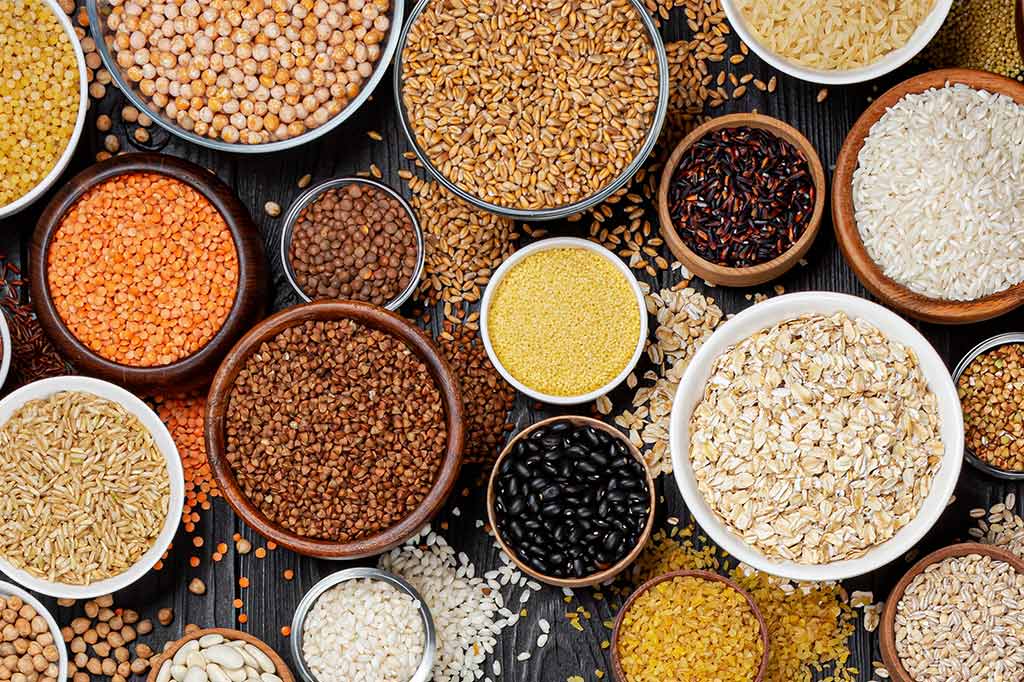
Millet, often called ancient grain, is a grain with small seeds. Its consumption is beneficial for our health in many ways. It has been grown for a very long time and contains a lot of nutrients. People look for some healthy food items for themselves. They look for something that does not have any bad effect on their health. Millet also does something similar. Now many things are being made from millet, including millet cookies and snacks. In today’s time, millet is becoming very popular again. Because its consumption is very beneficial for our health. So let’s read how millet is beneficial for our health.
1. Rich in Nutrients
Millets are a rich source of nutrition, containing essential vitamins, minerals and dietary fiber. They provide a significant amount of magnesium, potassium, calcium, iron and B vitamins, which are important for maintaining overall health. For instance, finger millet, also known as ragi, is particularly rich in calcium, making it an excellent choice for promoting bone health.
The high fiber content in millets aids in digestion and prevents issues such as constipation. This fiber also helps maintain a healthy gut by promoting the growth of beneficial bacteria in the digestive tract.
2. Gluten-Free Grain
Millets are already gluten-free. So people who get any disease like intolerance or celiac due to gluten can avoid it. As the demand for gluten-free foods continues to rise, millets serve as a versatile and nutritious alternative to wheat-based products. They can be used to prepare a wide range of dishes, from bread and pancakes to porridge and pilafs.
3. Heart Health Benefits
Incorporating millets into your diet can significantly benefit heart health. The high levels of magnesium and potassium in millets help regulate blood pressure, reducing the risk of hypertension. Additionally, the soluble fiber in millets binds to cholesterol in the digestive system, aiding in its removal from the body and thereby lowering bad cholesterol (LDL) levels. This dual action contributes to improved cardiovascular health and a reduced risk of heart disease.
Note: Eating millet in its natural form is boring. You can prefer millet cookies and snacks which are very tasty as well as healthy for your health.
4. Diabetes Management
One of the most notable benefits of millets is their low glycemic index. Unlike refined grains, millets release glucose slowly into the bloodstream, preventing sudden spikes in blood sugar levels. This property makes them an ideal food for individuals with diabetes or those looking to manage their blood sugar levels. Regular consumption of millets can improve insulin sensitivity and support long-term blood sugar control.
5. Energy Boost
Millets are an excellent source of complex carbohydrates, providing a steady and sustained release of energy. This makes them a great choice for athletes, individuals with active lifestyles, and those looking for an energy boost without the crash associated with refined sugars. A bowl of millet porridge in the morning can provide the energy needed to power through the day.
6. Weight Management
The high fiber content in millets plays a crucial role in weight management. It contains fiber which keeps you full and makes you feel less hungry, reducing the chances of eating unhealthy foods. Additionally, the slow digestion of millets ensures that energy is released gradually, keeping hunger pangs at bay. This makes millets an excellent choice for those aiming to lose or maintain their weight.
7. Digestive Health
Millets are not only easy to digest but also beneficial for overall digestive health. The insoluble fiber in millets acts as a prebiotic, supporting the growth of healthy gut bacteria. This can improve digestion, reduce inflammation in the gut, and promote regular bowel movements. For individuals with digestive disorders, millets can serve as a gentle yet effective dietary option.
8. Stronger Bones
Calcium-rich millets like finger millet are particularly beneficial for bone health. Calcium is essential for maintaining strong bones and teeth, and its inclusion in the diet can help prevent conditions like osteoporosis. Millets also contain phosphorus, another mineral that supports bone health by aiding in calcium absorption.
9. Boosts Immunity
Millets are rich in antioxidants, including phenolic compounds and flavonoids, which help neutralize harmful free radicals in the body. These antioxidants strengthen the immune system, reducing the risk of infections and chronic diseases. Additionally, the iron content in millets helps in the production of hemoglobin, improving oxygen transport in the body and boosting overall immunity.
Also Read | Also Check: Health benefits of pumpkin seeds
10. Environmentally Sustainable
In addition to their health benefits, millets are an environmentally friendly crop. They require less water, are drought-resistant, and can thrive in poor soil conditions. This makes them a sustainable choice in the face of climate change and increasing water scarcity. By choosing millets, consumers can contribute to a more sustainable food system while enjoying a nutritious diet.
Conclusion
Millets are a treasure trove of health benefits, offering a unique combination of nutrition, versatility, and sustainability. Whether you are looking to improve heart health, manage diabetes, boost energy, or support digestion, millets can play a vital role in your dietary plan. Their gluten-free nature and adaptability to various recipes make them an inclusive and accessible option for everyone.
By embracing millets, you not only enhance your personal health but also contribute to environmental sustainability. Incorporate these ancient grains into your meals and experience the myriad benefits they bring to your life and the planet.





Leave a Reply